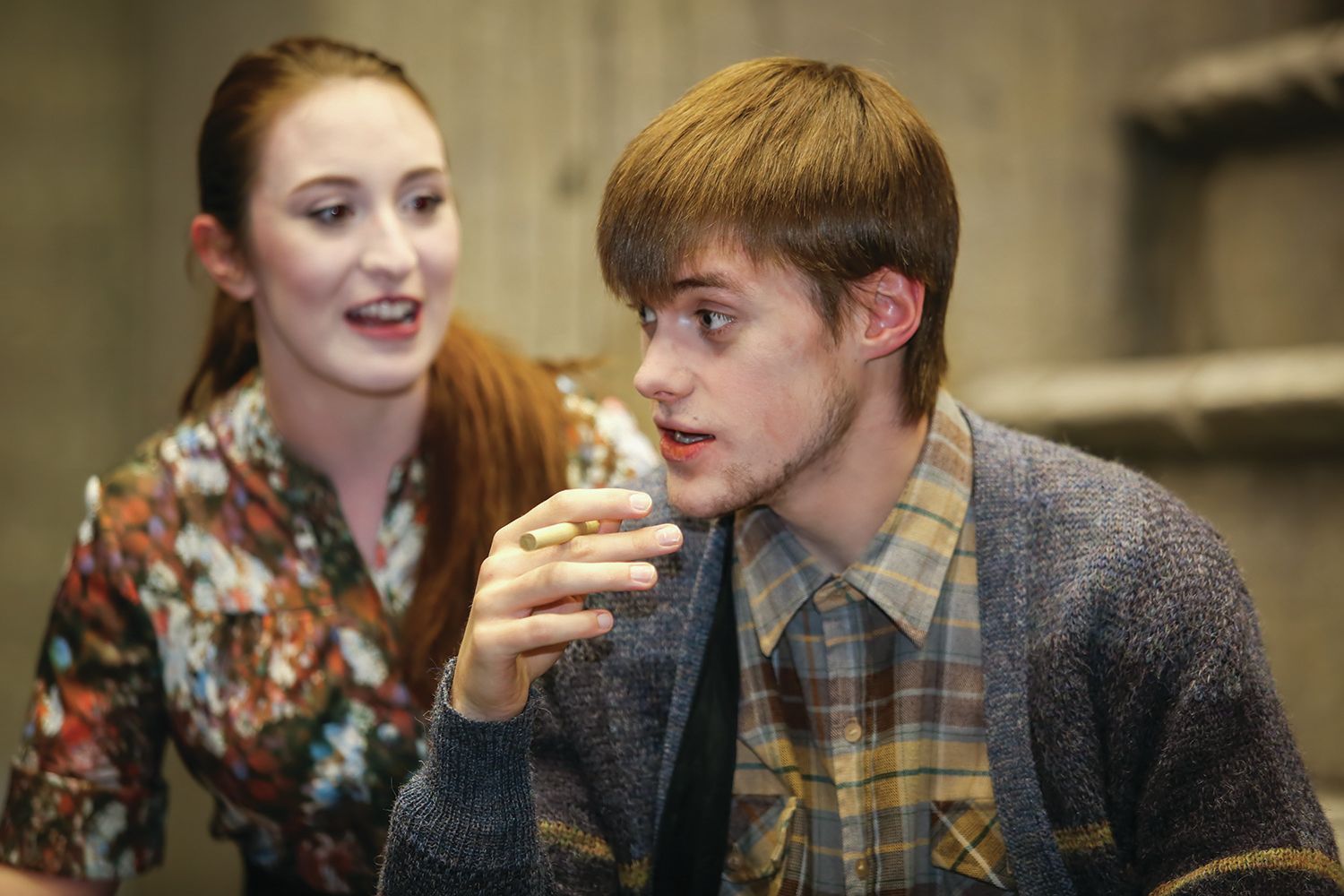Red Deer College theatre students are putting the finishing touches on their first theatrical offering of the season – Mad Forest – which opens Oct. 13th in Studio A.
Additional shows run Oct. 14th-15th and 19th-22nd. Curtain is at 7:30 p.m. There are also matinees Oct. 15th and 22nd with curtain at 1 p.m. Penned by Caryl Churchill and directed by Thomas Usher, Mad Forest, which was written in 1990, is about an uneasy spirit is brewing in the people – and in December 1989 it begins, reads the synopsis.
Even as two families are connected through the wedding engagement of their children in Romania, there springs a parable for revolutions to come. The three acts occur shortly before, during and shortly after the Romanian Revolution of 1989.
The first act and the third act are dramatic fictions. “The second act is based on interviews conducted by the playwright, a director and 10 Romanian student actors.”
The first act is set in Communist Romania, several months before the Revolution, and establishes an atmosphere permeated by the Securitate (Romania’s secret police), in which one young woman’s engagement to an American draws scrutiny on all of her family and associates.
The second act recounts the events of Dec. 21st –Dec. 25th, 1989 in Bucharest.
According to Wikipedia, the third act is, “Set largely in a hospital where one of the characters from Act I is recovering from injuries sustained during the fighting. It engages matters such as Romanian perceptions of the Hungarian minority and many conflicting views as the extent to which the events December 1989 and the rise of Ion Iliescu constituted a coup d’état versus a revolution.”
As Usher said, it’s a look at the macrocosm of a particular space of time through the microcosm of family.
“How do we communicate with each other? How do we say things we’ve been meaning to say all of these years but we never did before because it was incorrect or dangerous to say?
“Really, the whole thing is a metaphor for what Churchill experienced when she was watching the Romanian revolution as many of us did,” explains Usher, adding that the play features a cast of 15 second-year students.
“She had worked with 10 Romanian students in Romania in March of 1990. So it was still all very fresh in people’s memory.
“The play itself was first produced in London originally and then in Bucharest that same year. So it was a very new reaction to what she saw.”
Questions indeed abounded. “What do you do after a revolution? What do you do the next day? Everything has changed. The security is gone; the government has been toppled. How do you go on with your life? How do you navigate that uncertainty.”
The title alludes to a passage in A Concise History of Romania that says that Bucharest stands on land that used to be an impenetrable forest, “Impenetrable by the foreigner who did not know the paths,” known to the horsemen of the steppe as ‘Teleorman – Mad Forest.’
According to Wikipedia, Churchill is known for dramatizing the abuses of power, for her use of non-naturalistic techniques and for her exploration of sexual politics and feminist themes.
“Her early work developed Bertolt Brecht’s modernist dramatic and theatrical techniques of epic theatre to explore issues of gender and sexuality.”
Churchill was born in London, England. After the Second World War, her family emigrated to Montreal.
She later returned to England to attend university.
She also began her writing career there. “She actually spent 10 years of her youth growing up in Montreal,” said Usher. “Whether that had any influence on her political take, also having lived through the Blitz in London, and then coming to Quebec – I don’t know. But she went back to study at Oxford and began to write plays, first of all for university then the BBC. She also did some work for some influential theatre companies in London.”
These theatres were using new styles of performance, breaking down narrative in a post-modern way, explained Usher.
“It’s much more fragmented in the way that it looks at issues and ideas; it follows characters loosely – more as a framing device to explore the issues and the themes that she’s interested in.”
For Usher, it’s been a fascinating look at a chapter of history that is really rather recent.
“It’s such a richly layered play. There’s so much in this play that is not said – the sub-text is so important because people living under oppression cannot say things aloud. So we have to act that sub-text a lot more, and that’s been a challenge for them. But it’s been kind of cool. There’s also been a lot of great research to do, to immerse ourselves in that world again.
“I go back to the play being written within five months of the revolution. It was so new when it came out – it wasn’t looking back too far. It wasn’t history yet – it was history still being made.
“I’m drawn to this play for what it can do for the audience,” he added. “Mad Forest can help audiences to confront and engage their imaginary capacity while also provoking discussion over the valuable socio-political themes that are part of our world.”
For ticket information, visit www.blackknightinn.ca.
editor@reddeerexpress.com



